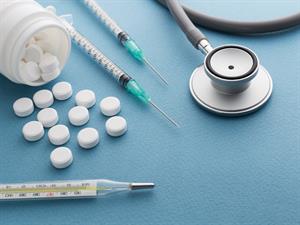
PUMPA - SMART LEARNING
எங்கள் ஆசிரியர்களுடன் 1-ஆன்-1 ஆலோசனை நேரத்தைப் பெறுங்கள். டாப்பர் ஆவதற்கு நாங்கள் பயிற்சி அளிப்போம்
Book Free DemoTo speak about medical treatment, you need to know the appropriate vocabulary.

Bandage - a long piece of soft cloth that you tie around an injured part of the body;
Painkiller - a drug which reduces pain;
Diagnosis - when a doctor says what is wrong with someone who is ill;
Dose - a measured amount of medicine that is taken at one time or during a period of time;
Crutch - a stick that you put under your arm to help you walk if you have injured your leg or foot;
Medicine, drug - a substance used to cure an illness or injury;
Cough medicine - medicine in the form of a liquid that helps a cough get better;
Ambulance - a vehicle that takes people to hospital when they are ill or hurt;
Operation - when a doctor cuts someone's body to remove or repair part of it;
Patient - a person who is at the doctor’s;
Sling - a piece of cloth that you wear around your neck and put your arm into to support it when it is injured;
Plaster - a small piece of sticky material that you put on cuts on your body;
Side-effect - another effect that a drug has on your body in addition to the main effect for which the doctor has given you the drug;
Pulse - the regular movement of blood through your body when your heart is beating;
X-ray - a wave of energy that can pass through solid materials;
Prescription - a piece of paper saying what medicine someone needs or the medicine itself;
Sleeping tablet/pill - a pill that you take to help you to sleep better;
Remedy, cure - something that makes you better when you are ill;
Thermometer - a piece of equipment that measures the temperature of the air or of your body;
Surgery - when a doctor cuts your body open and repairs or removes something;
Syringe - a piece of medical equipment used to push liquid into or take liquid out of someone's body.
Examples:
What is the recommended dose?
Charles was on crutches (= walking with crutches) for six weeks.
My son's got to have an operation.
She put her fingers on my wrist to take my pulse.